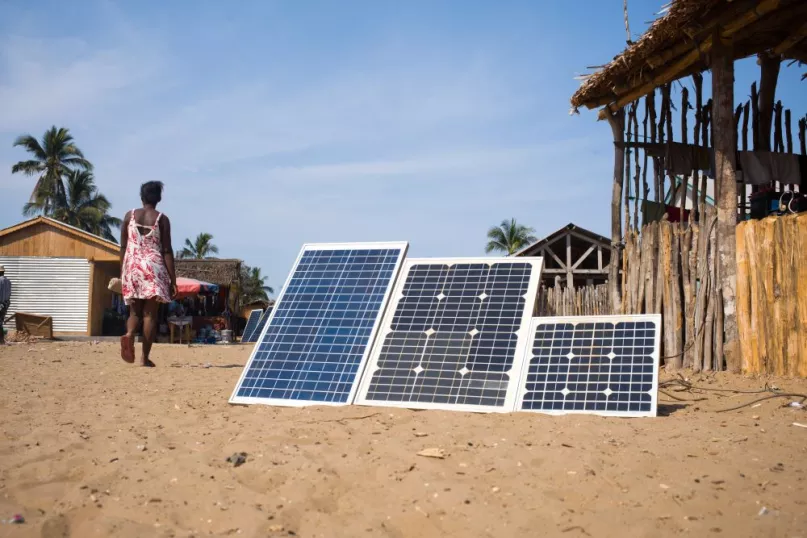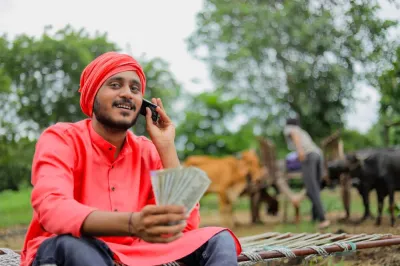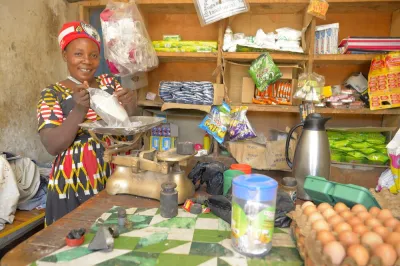Harnessing the Potential of Inclusive Finance for Energy Access

And there is still plenty of room for innovation in how programs are developed and implemented. The SAM (African Microfinance Week) Conference last October was a great opportunity to experience both - learning from other green microfinance experiences and discussing innovative new ways of working.
I moderated the SAM Conference session, “Inclusive finance and green economy: challenges for access to sustainable basic services.” On the panel, we heard from two MFIs, an investor and an energy startup: Mr. Diéry Séne, director of FANSOTO in Senegal, Mr. Kebede Bekele, managing director of PEACE MFI in Ethiopia, Mr. Olivier Deiters, senior investor manager at Triple Jump based in Kenya, and Mr. Aaron Leopold, CEO of the startup EnerGrow (participating virtually). Each of the panelists shared recommendations on how we can all contribute to making an impact in access to basic services for populations in need.
The main takeaways of the session highlight how microfinance stakeholders have managed to encourage sectorial engagement and innovation in order to advance green inclusive finance.
1. Understand clients’ needs first, then plan the business.
The assessments can provide detailed baselines not only for demand assessment, but also for supplier contract negotiations, product development and carbon finance scheme setup.
Mr. Séne shared the experience of FANSOTO as it participated in the Impact-Driven and Action-Based Research Project (IMPACT-R), implementing HEDERA’s digital tools to assess clients’ needs. The MFI trained local enumerators for detailed data collection at the household level. The results provided valuable data for the institution, showing the market potential for solar energy technologies, sanitation facilities and equipment for productive use. Based on this assessment, FANSOTO is currently identifying suppliers for partnering.
2. Don’t try to do it alone.
Strategic partnerships can boost the potential of microfinance as a vehicle to enable access to basic services by making use of the partners' specific competencies. Mr. Kebede Bekele explained how collaboration – with suppliers, funders and other stakeholders - has been key for the rollout of PEACE MFI’s products financing renewable energy (solar home systems, solar lanterns) in Ethiopia.
By partnering with suppliers and then providing financing for its clients, PEACE MFI has been able to meet the demand for these technologies as well as facilitate access to finance for remote populations. This has been possible through the Clean and Affordable Lighting Loan (CAALL) project, a collaboration with the Africa Enterprise Challenge Fund (AECF) efficient solar loan project and the Development Bank of Ethiopia through the Rural Finance Intermediation Program (RUFIP) .
3. Keep innovating.
Triple Jump, with over 15 years of experience in financing MFIs in sub-Saharan Africa, has been shifting from financing only MFIs to financing energy companies as well. Through the Energy Entrepreneurs Growth Fund, Triple Jump offers flexible, equity, mezzanine, and debt funding, with the ambitious plan of raising an additional $75 million to provide enterprises multiple rounds of financing throughout their growth phases.
EnerGrow, a young, mission-driven tech startup, is taking an innovative approach to unlock local productivity. By financing consumer energy assets, they help grow demand for electricity in rural areas to ensure the economic viability of energy providers that have electrified villages. As part of their efforts to demonstrate a profitable business model, EnerGrow is exploring how digitally collected data from their payment system can be used for credit scoring and risk assessment, establishing relationships with financial service providers who may be able to use that data.
While they come from different sectors, both of these institutions share a common goal of expanding access to sustainable energy and finance for low-income populations, and they are innovating within their fields to achieve it.
Moving forward
For areas with poor infrastructure, access to finance is crucial for enhancing access to basic services. With over a decade of experience under our belt combining these two areas, we now have lots of examples to learn from, as we saw in our panel at SAM Conference. The importance of strategic partnerships, efficient needs assessments and continued innovation are just a few of these lessons. The key for moving forward is to take these lessons and build upon them to harness the potential of inclusive finance for energy access.


